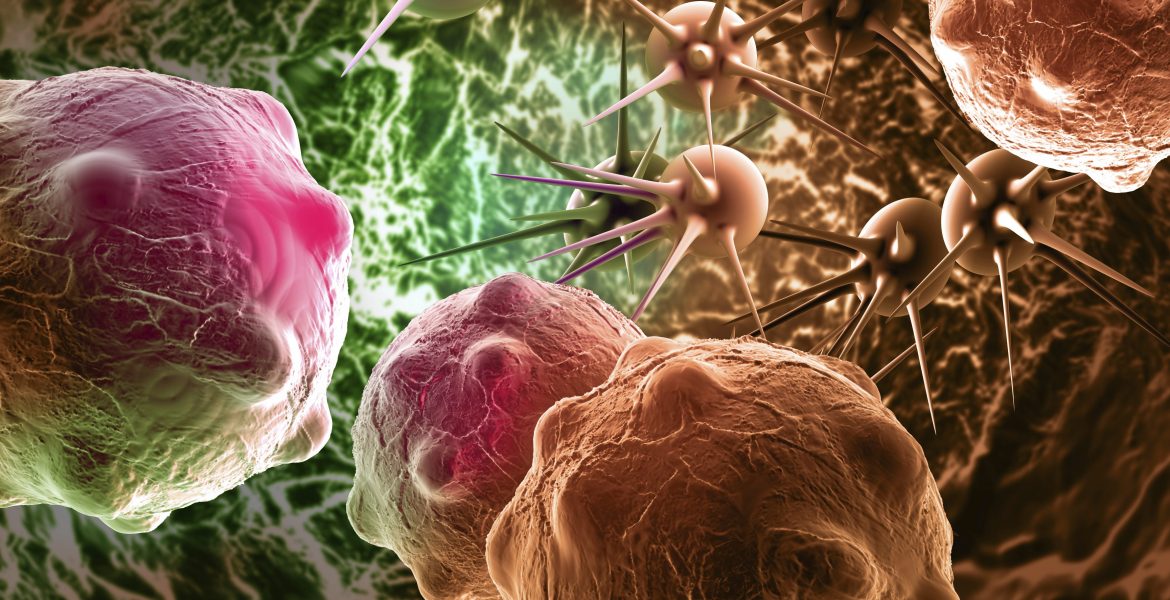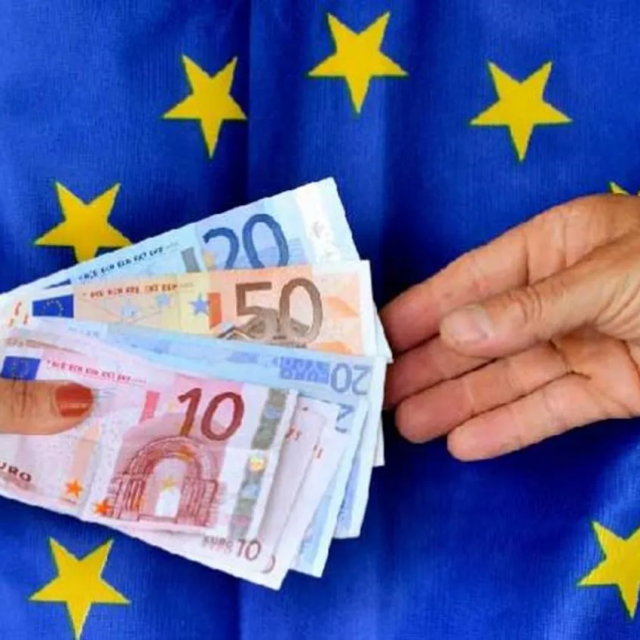Every year, 1.3 million people in the EU die of cancer and 2.7 million are diagnosed with it.
The EPP says, “We can and must change this trend.”
Its message is: “The work we do in the European Parliament’s Special Committee on Beating Cancer (BECA) must make a difference to people’s lives.”
The EPP Group already presented a 10 step cancer plan in 2019.
It says, “The Master Plan was our pledge to make beating cancer a European priority. We have succeeded in doing that and as a result the EU has committed to a cancer plan the most comprehensive set of actions to date that focus on cancer. But now, we want to take a step further. The result of the European Parliament’s Special Committee on Beating Cancer must look beyond the EU’s cancer plan and focus on more areas where the EU can provide added value.”
Its spokesman added, “There are our 10 key demands we want to see reflected in the final report of the BECA Committee”.
1. Just as European legislation undergoes an SME stress test for impact on small business, we want European health actions to undergo a research stress test
We want to join efforts, knowledge and money in Europe to fight one of the most dreadful diseases of mankind. Only if the best brains come together and cooperate, we can make progress. The European Commission must be able to spot and remove obstacles researchers face in their work. It must eliminate unnecessary red tape that slows down cross border cancer research. We suggest the appointment of a cross border cancer research special envoy, which directly reports to Commission President.
2. We want to understand why cancer is developing in cells and tissues and treat it before the patient gets symptoms
We want to understand why cancer is developing and treat it before the patient gets symptoms through prevention, early detection and treatment and to support research on this. There is valuable research done by projects such as the LifeTime project which uses integrated digital and biomedical technological solutions to detect diseases much earlier than is currently possible. Such projects must get appropriate funding to conduct their valuable research. We must keep European researchers in Europe. We are convinced that national funding will not be enough to offer this perspective. We must look beyond national political agendas and provide structural funding for research institutions under Horizon Europe.
Just as the EU has done it for COVID-19, it should support more clinical trials especially non-profit ones, as well as research into rare cancers, including paediatrics.
3. Break down barriers to data for research
Sharing data across borders can help researchers gain valuable insights how to treat them. This is particularly true of rare cancers many of which affect children. Every year in Europe, 6000 children die of cancer. Big data can help save children’s lives. We need to create a European network of databases of verified quality and content with the highest levels of data security.
The EU data protection law (GDPR) has specifically protected health data, and rightly so, but its implementation has proven to be an obstacle to data sharing for research purposes. The European Commission must address this and if needed amend the GDPR legislation.
We must look into ways how to better exchange the information available and work with Artificial Intelligence. By developing eHealth infrastructure, the issue of accessibility of specialised therapies can be addressed and unnecessary travelling for patients avoided.
4. Europe purchased COVID vaccines jointly, why not life-saving cancer drugs
We want every patient in Europe to have equal access to affordable medicines. We want to promote European joint procurement, as was done for COVID-19 vaccines, for treatments of very rare types of cancer, especially paediatrics, and novel cancer treatments. Member States, when deciding which medicine to authorise for national use and at what price, should also consider whether the product has been produced completely or partially in Europe. This is how we can reduce our dependency on third countries and avoid a shortage of medicines all together.
We must actively promote life-saving cancer treatments. We want the European Commission to come forward with new rules regarding pharmaceuticals cancer medicines and therapies to make them better accessible, affordable and available. We need more incentives for breakthrough innovations and fewer incentives for highly expensive medicines or medicines which have limited or no added value for patients.
5. Make it easy for patients to seek treatment in another EU country
Currently, there are major obstacles to accessing cross-border health care and EU citizens are mostly not aware of the rights that are granted to them by the EU.
We believe there should be a single set of authorisation and reimbursement rules across the EU which would make things simpler and more transparent for patients needing treatment in an EU country other than their own. Additionally, if the patient’s chosen care provider has been authorised in its home country, no additional prior authorisation should be necessary by the country of residence of the patient. Finally, EU rules on cross-border health care currently only provide for basic information to be provided to patients about possibilities of accessing cross-border care. These rules should be strengthened and impose a clear obligation on EU Member States to proactively inform their citizens about the rights they have at their disposal.
6. There should be no first and second-class citizens in Europe
Cancer knows no social status, knows no borders. Nevertheless, cancer patients in Eastern Europe have a 30 percent less chance of recovering compared to patients in Western Europe. We have to work together to help every patient, no matter where he or she lives in Europe. Investing into health infrastructure (such as hospitals) and employing more doctors and nurses must be the priorities of the European cohesion funds! Patients should be facilitated to seek a second opinion cross-border, especially when a good clinical cancer practitioner is not available within the patient’s local area.
7. Strengthen care and quality of life of cancer patients
Cancer survivors continue to live with physical and psychological symptoms associated with pain. The Commission should provide a platform for the exchange of best practices in palliative care and support research in palliative care. All cancer centres must provide psychological support to patients.
We call for a European Care Strategy, both to support carers in their work and to ensure that those receiving care or needing support are best provided for. The Strategy must include measures to tackle informal care through formalisation and recognition at Member State level, promote access to social security systems, and further advance the prevalence of carers leave, recognition of skills and possibilities for career development.
8. A comprehensive strategy for targeted prevention
We support ideas to even more reduce tobacco consumption in Europe. As part of a comprehensive strategy, harm reduction should play a role without undermining the target of preventing children from starting to use alternative products like e-cigarettes and heated tobacco products and of course tobacco. The Commission should not introduce further restrictions for harm reduction products but continue to evaluate scientific progress in this respect.
We acknowledge the fact that even moderate consumption of alcohol is linked to health risks including cancer, but acknowledge the role of moderate alcohol consumption in the tradition in many European member states. We oppose to put alcohol and tobacco at the same level because evidence clearly shows that tobacco is much more relevant in causing cancer. However, we agree with a moderate labelling strategy. Mandatory indication of a list of ingredients, nutrition declaration and scientifically valid proportionate health warnings should be introduced. We ask for a European strategy of zero alcohol consumption for minors including if legally possible, legislative proposals.
9. More focus on childhood cancer
Children and young adolescents (AYAs) with cancer are often hit with rare types of cancer. Especially for them, the EU is of clear added value by incentivising pharmaceutical companies to invest in child-specific drugs for this category of patients. The necessary research needs to go easier, more accessible and quicker through multinational clinical trials and supporting the work done by public universities. We want to introduce at least one specialised AYA-centre in every Member State.
10. Those who survive, must not be punished twice
We want cancer survivors to have the right to be forgotten. Insurance companies or banks should not deny cancer survivors, who have beaten their disease, access to financial services, such as mortgage, or ask for additional and higher premiums.




